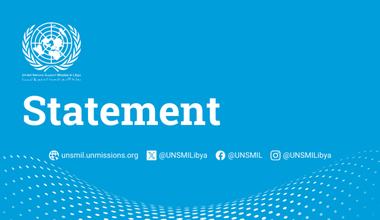UNSMIL SRSG Visits Yefren and Al-Zintan, Stresses Importance of Civil Society Voice in New Libya
Tripoli, 27 December 2011 – United Nations envoy to Libya and Head of the United Nations Support Mission in Libya (UNSMIL) Mr. Ian Martin continued his series of visits to Libyan towns and areas. On Saturday, he visited Al-Zintan and Yefren in the Nafousa Mountain, where he met with members of the local and military councils and representatives of Libyan civil society, youth and women organizations.
During those meetings, Mr. Martin exchanged views with his interlocutors on ways in which UNSMIL and UN Agencies, Funds and Programmes in Libya can assist Libyans face the challenges of its transition. Among challenges stressed were preparations for the elections, integrating rebel fighters into Ministries of Defence and Interior forces and other civilian jobs, restoring public security, human rights protection and transitional justice and enhancing participation of Libyan civil society in the national dialogue. He said, "Certainly the United Nations here in Libya will always be open to hear the views of civil society."
He highlighted that all issues and concerns raised by his interlocutors will be decided upon by the Libyans themselves: "Libyans have made this revolution and Libyans will now make the new Libya." At the same time, he added, the United Nations brings its standards and principles to any work it does, and one of those principles is the importance of civil society and of the accountability and transparency of authorities to civil society. Other principles that we bring are the importance of inclusion, the empowerment of women and full respect for minorities and indigenous people within any society.
The UNSMIL delegation visited the headquarters of the local councils in Yefren and Al-Zintan, as well as the local hospitals and youth exhibitions.
UNSMIL is a special political mission, headed by the Secretary-General's Special Representative for Libya (SRSG), Ian Martin. It is mandated to support the Libyan people and their authorities in fields such as elections, human rights and transitional justice, and public security.
 United Nations Peacekeeping
United Nations Peacekeeping UN
UN







